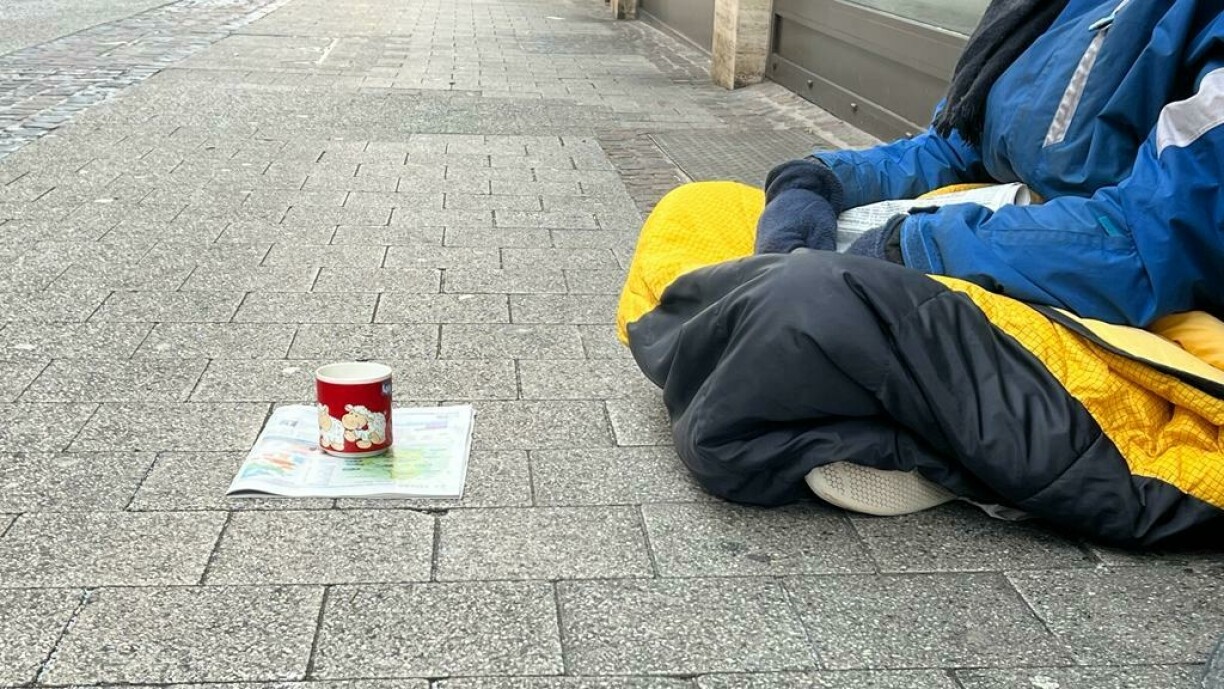
Since Monday, the ban encompasses the neighbourhood of Ville-Haute and the area around the central railway station, prohibiting begging between 7am and 10pm.
On the first day, media and activists closely observed the police enforcement in Ville-Haute. But what about the day after? Our colleagues from RTL Radio took to the streets to talk with those directly affected by the ban.
On Tuesday morning, just before 9am, with shops still closed and municipal workers tending to the streets, our colleagues encounter Gilles sitting with his cup on Avenue de la Porte Neuve. Gilles assumes that this street falls outside the prohibited perimeter, and says that the law is primarily directed against organised begging gangs anyway.
During the conversation, two street workers come up the street. They and Gilles know each other. While they tell Gilles that he is wrong in his belief that he is allowed to sit in this spot, they refrain from further interference, stating, “We’re not the police after all.”
The street workers state that they want to stay out of political discussions and emotional debates, otherwise they would not be able to do their work. However, they acknowledge dealing with organised begging gangs as well, explaining that those are the people begging in a more aggressive manner.
They note that these individuals often feign deafness or muteness when approached, only to communicate normally shortly afterward. Now that the Christmas market is over, the gangs have largely disappeared from Luxembourg City, according to the street workers.
While this could also be due to the colder temperatures, the street workers state that these gangs come and go at regular intervals throughout the year. They claim that the individuals in question specifically come to Luxembourg to beg.
After a few minutes, a police patrol enters the street, approaching Gilles and informing him that having a cup in front of him is not allowed. While he would typically receive a penalty notice, the officers decide against it as they are on their way to another assignment.
When the police issue a so-called penalty notice, they must first establish the identity of the individual, a process complicated when the person lacks identification papers or comes from abroad.
In such cases, a visit to the police station becomes necessary for identity verification, possibly involving interpreters and coordination with law enforcement in other countries. It is important to note that police intervention is now mandated for any form of begging, not just instances involving aggressive solicitation from passers-by.
Gilles is instructed to put away his cup but is allowed to remain seated, as sitting itself is not deemed illegal. Even receiving money from passers-by is acceptable, as long as he does not overtly display signs of begging, such as using a cup or a sign.
Another group of young people is sitting a few streets away near Hamilius. When the police come, they just put the cups away, says one of them.
The ban makes little sense in their eyes. After all, they are not disturbing anyone, they say: “We’re sitting here, we’re not doing anything to anyone, and if we’re banned from doing that now, then some people might become criminals and steal in order to survive. That can’t be it either,” says Pit, who has been living on the streets for ten years.
The group also mentions organised gangs, using terms like “Roma” and “Romanians” interchangeably, despite the fact that they refer to two distinct groups of people.
The way the young men describe it, it seems as if there are two camps that are not on good terms. Max stresses that the gangs are the ones who are aggressive, adding that he can understand why people might be annoyed.
Max, visibly upset about the new ban, shares that he does not know how else to make ends meet on the street. While he stays in a shelter at night, he admits to feeling unsafe there. Max has not lived on the street for long and wants to stay out of trouble. Overall, Max and his friends feel unfairly penalised by the recent ban.